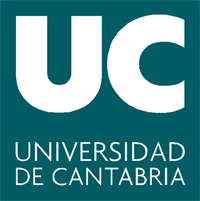Operating Systems / Sistemas Operativos (2018)
Diagrama de temas
-

Teaching Faculty
Pablo Prieto Torralbo
Department of Computer Engineering and Electronics
In this subject, the student will discover the activity of the Operating System, dividing it into three basic components: Resource Virtualization, Concurrency and Persistence. The student will learn the different policies and mechanisms used by operating systems, along with the hardware, and how it provides basic services through system calls. Additionally, the student will learn to operate in a Unix environment (GNU-Linux) both from the point of view of user and programmer, making use of the shell, as well as the C language and the necessary Application Programming Interfaces (APIs).
Keywords
Computers, Operating Systems, C Programming Language, Scheduling, Memory, Concurrency, File System, Unix, Linux, System Calls.
-

Course Information
-
Course: Operating Systems / Sistemas Operativos
-
Code: G850
-
Department / Unit: Department of Computer Engineering and Electronics
-
Degree: Degree in Computer Engineering
-
Faculty: School of Industrial Engineering and Telecommunications
-
ECTS credits: 6
-
Language of instruction: English
-
Instructor: Pablo Prieto Torralbo
Course structure
- Topic 1. Introduction.
- Topic 2. Virtualizing CPU.
- Topic 3. Memory virtualization.
- Topic 4. Concurrency.
- Topic 5. Persistance.
-
-

Required reading list
-
Remzi H. Arpaci-Dusseau & Andrea C. Arpaci-Dusseau (March, 2015): «Operating systems: three easy pieces». Ed. Arpaci-DusseauBooks. (Version 0.90). www.ostep.org.
-
A. Silberschatz; P.B. Galvin & G. Gagne (2010): «Operating system concepts essentials». Ed. John Wiley & Sons. 8th Edition.
Suggested additional reading
-
J. Carretero; F. García; P. de Miguel & F. Pére (2007): «Sistemas operativos. Una visión aplicada». 2ª Ed. Editorial McGraw Hill.
-
A. Robbins (2004): «Linux, programming by example». Ed. Prentice Hall.
-
-
-


Pablo Prieto Torralbo
Department of Computer Engineering and Electronics
UNIVERSITY OF CANTABRIA
Additional information



